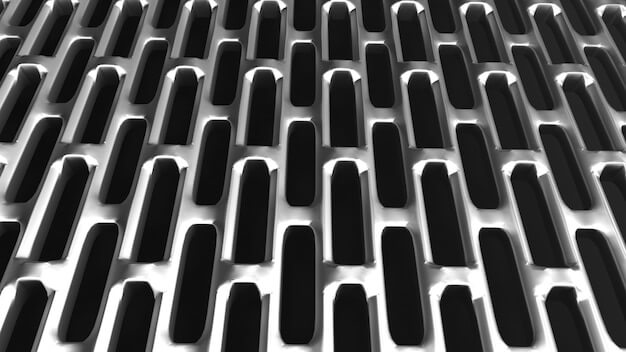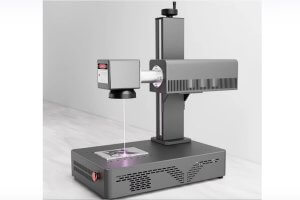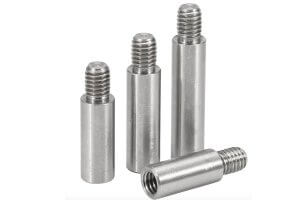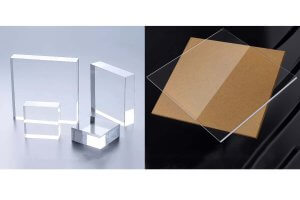Introduction: The Importance of CNC Machining in Manufacturing
In the realm of manufacturing, Computer Numerical Control (CNC) machining plays a pivotal role. This highly automated process uses software to command machine tools to produce parts that are precise and consistent – critical factors in sectors that put a premium on accuracy such as aerospace, defense, medical and automotive industries. CNC machines can bring digital designs to life by cutting them out from a wide variety of materials which include metals like brass – one of the most common material due to its properties including ease of machinability, corrosion resistance, excellent thermal conductivity, among others. For instance, in custom metal fabrication, a brass component created using CNC technology provides high precision and consistency across numerous iterations, something that is not usually achievable with manual processes.
An In-depth Look at Brass CNC Machining Process
Brass CNC machining involves the following key steps:
- Selection of high-quality brass material
- Precision machining of brass components
- Utilization of CNC technology for accurate shaping and detailing
- Post-processing treatments for surface finishing
Advantages of Brass CNC Machining – Cost Efficiency
One significant advantage of brass CNC machining in the realm of custom metal fabrication is its cost-efficiency as compared to traditional methods. This can be attributed to several factors, all working synergistically to reduce overall costs.
- Faster Turnaround Time: CNC machines can function around the clock unattended except for routine maintenance, meaning they have a higher potential output than manual processes, reducing production times markedly.
- Error Reduction: The computer-aided precision of CNC machining minimizes errors that often occur with manual techniques. Fewer mistakes translate into lesser wastage and reworking costs.
- Labor Savings: Although front-end setup for CNC may involve more labor, once functional, it requires significantly less human intervention than traditional methods, saving on labor expenses.
For instance, consider the fabrication of a specific component like a gear. Traditional methods would require multiple steps such as casting or forging followed by finishing procedures like grinding or polishing. Each step incurs both material and labor costs along with the risks of error. Conversely, with a one-step automated process like CNC machining if correctly programmed, you get precise components at a fraction of the time and cost.
Precision of Brass CNC Machining
The traditional methods in metal fabrication may not meet the rising demand for accuracy and precision. However, with the advent of brass CNC machining, continued sophistication has been observed in creating custom designs down to micron-level precision. Undeniably advantageous, this system provides repeatability and high accuracy that were once unimaginable. For instance, in the creation of high-end luxury watches, intricate parts like cog wheels or escapement systems require exceptional attention to detail and perfect robustness. With the use of Brass CNC Machining, these tiny pieces can be accurately produced with exact match to their designated blueprints, eliminating the chances of flawed outputs — hence providing strong proof on how advantageous this advanced technology is. The ability of the system to cut precise shapes repetitively over a large scale demonstrates both accuracy and consistency achievable only through well-calibrated machines.
Material Utilization in Brass CNC Machining
The use of Brass Computer Numerical Control (CNC) machining in custom metal fabrication substantially minimizes waste metal, offering enhanced material utilization. As a computer-controlled process, brass CNC machining guarantees precise cuts to exact specifications; hence there is limited excess material during the manufacturing process, unlike traditional methods that may create significant waste. This high degree of precision not only reduces environmental impact but also translates into crucial cost savings in raw materials for manufacturers.
- Precision: The CNC machine works with high-level accuracy decided by the fed program, reducing waste from errors or inaccurate cuts.
- Eco-friendly: Less wasted material means less carbon footprint and an overall greener manufacturing approach.
- Cost-effectiveness: Saving on raw materials directly reduces production costs, making this method economically favorable.
In specific instances where large quantities of identical parts are required, brass CNC machining can optimize usage of the brass material exceptionally well. For instance, in the production of automotive components where each piece must be exactly alike, utilizing CNC machining ensures optimal use of raw materials through consistent cutting results, leading to minimal wastage.
Applications of Brass CNC Machining in Custom Metal Fabrication
The process of brass CNC machining has been widely utilized across numerous sectors due to its ability to fabricate complex and finely detailed parts with exceptional durability. Particular industry applications can be seen prominently within the likes of:
- Automotive Industry: A key sector where brass CNC machined parts are extensively implemented, particularly for components like pistons, radiator cores, gears, and valves which require precision and reliability.
- Aerospace Industry: This field relies heavily on brass CNC machining for creating robust and accurate components such as fittings, fasteners, and connector pins necessary for spacecraft and aircraft functionality.
- Medical Field: In this critical area, custom-made brass parts are produced through CNC machining to meet stringent health standards; items include surgical instruments, implants, orthopedic devices and more.
All these industries avail from the benefits offered by brass CNC machining like high-precision output, cost-effectiveness, and consistent quality which is paramount for their respective operations.
Customized Brass Components Fabricated By CNC Machine
In the realm of custom metal fabrication, Custom Numerical Control (CNC) machining offers unique advantages when it comes to producing bespoke brass components. Precision is key in CNC machining, allowing for the creation of parts that perfectly match client specifications, thereby providing tailored solutions. For instance, a manufacturer may need specialized gears with non-standard dimensions for a machinery unit they are assembling. In such cases, CNC machines can take dimensional data directly from computer-aided-design (CAD) or computer-aided-manufacturing (CAM) files and produce those specific sizes accurately, resulting in an exact fit and efficient functioning.
- Precision: With CNC machining, errors due to manual labor are minimized thus leading to the production of consistent and high-quality components.
- Versatility: It allows the creation of any kind of complex shape which could be extremely difficult when using manual processes.
- Speed: The automated nature of CNC machining results in faster production than traditional hands-on fabrications.
In essence, custom brass components fabricated by CNC machine offer high precision, versatility, and speed – attributes that contribute significantly to achieve prompt delivery of customized solutions in metal fabrication projects. Sacrosanct quality control standards also mean all produced items meet the required thresholds safely without undermining product integrity.
Conclusion: The Revolutionizing Impact of Brass CNC Machining
In conclusion, it is evident that brass CNC machining offers an array of advantages that significantly enhance the effectiveness and efficiency of custom metal fabrication processes. Its benefits range from high precision to increased productivity, incomparable versatility, cost-efficiency, speedy production rates, and superior quality outputs. These features and capabilities make it a preferred choice in numerous applications including automotive parts manufacturing, electronics, construction industries, and decorative piece making among others.
Practical examples of these applications are manifold such as intricate components for electronic items like smartphones which demand absolute accuracy or complex parts in car engines which require durability and heat resistance withstanding constant use.
The transformation brought about by brass CNC machining techniques in the landscape of manufacturing undeniably validate its indispensability. With recent technological advancements adding even more value to this process, it seems clear that the future of manufacturing will continue to be revolutionized by brass CNC machining and its ever-expanding potentialities.
Other Articles You Might Enjoy
- The Role of Aluminum Alloys in Modern CNC Machining: A Cost and Performance Analysis
Introduction: CNC Machining and the Importance of Materials Used in the Process CNC machining or Computer Numerical Control machining is a globally adopted manufacturing process involving pre-programmed computer software to…
- Bead Blasting in CNC Machining(sheet metal fabrication Charles)
Bead blasting is an integral process in the world of Computer Numeric Control (CNC) machining. This technique involves the use of high-pressure air or steam to propell tiny glass beads…
- Precision CNC Machining of Brass: Optimizing Techniques for Custom Metal Fabrication?
Precision CNC Machining of Brass: An Introduction In the realm of custom metal fabrication, precision CNC machining holds a cardinal position. This technological method entails the use of computer numerical…
- Enhancing CNC Machining with Bead Blasting(sheet metal fabrication Rose)
CNC (Computer Numerical Control) machining is a manufacturing process where pre-programmed software dictates the movement of machinery and tools, creating precision parts out of raw materials. One highly effective method…
- Brass vs. Bronze: Unveiling the Superior Metal for CNC Machining
Introduction CNC machining stands for Computer Numerical Control machining, a manufacturing process where pre-programmed computer software dictates the movement of factory tools and machinery. This technique is pivotal for creating…
- High-Precision CNC Machining for Advanced Medical Diagnostics
Computer Numerical Control (CNC) Machining in Advanced Medical Diagnostics CNC machining, a manufacturing process that utilizes pre-programmed computer software to dictate the movement of factory tools and machinery, plays an…









